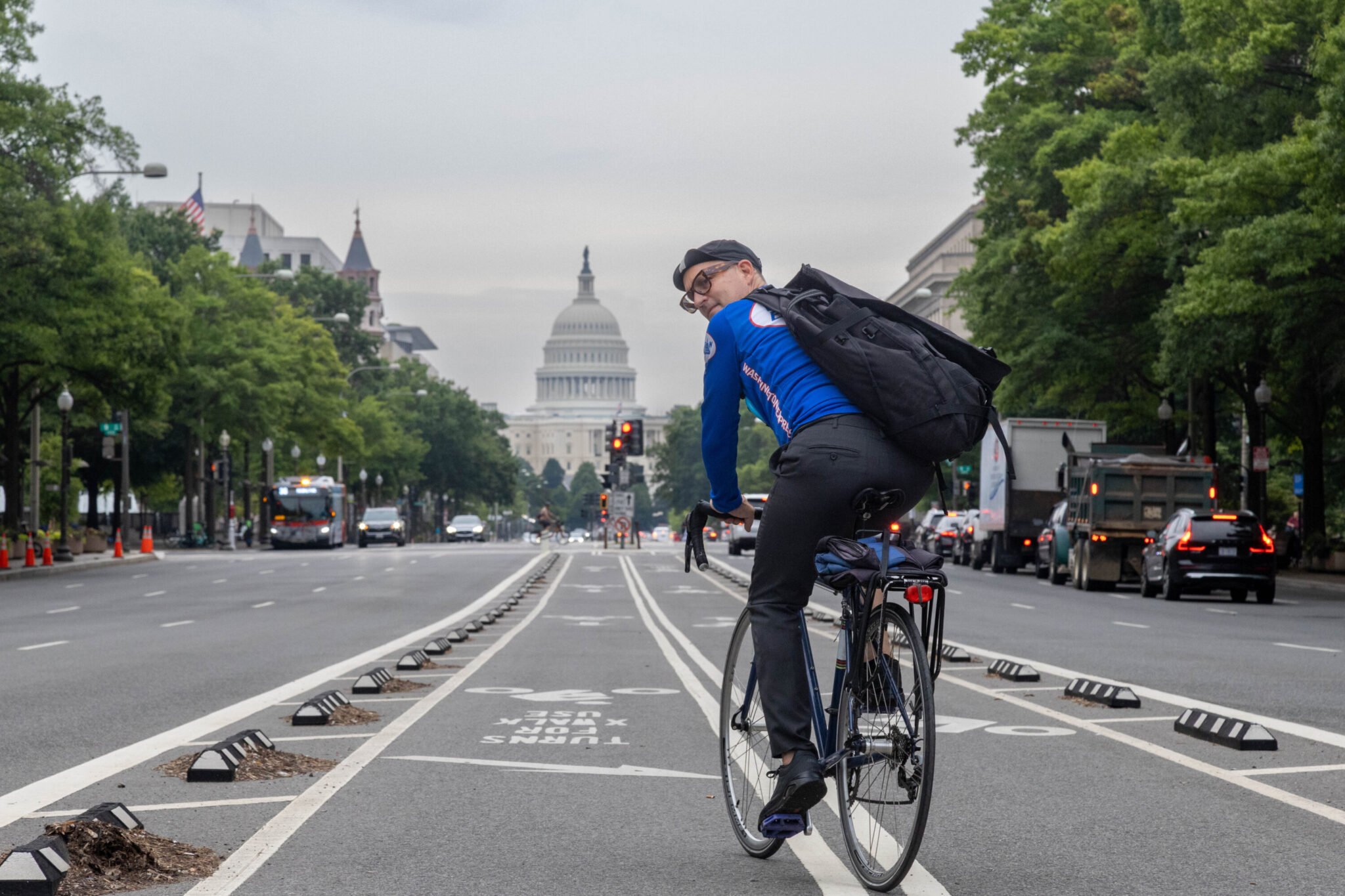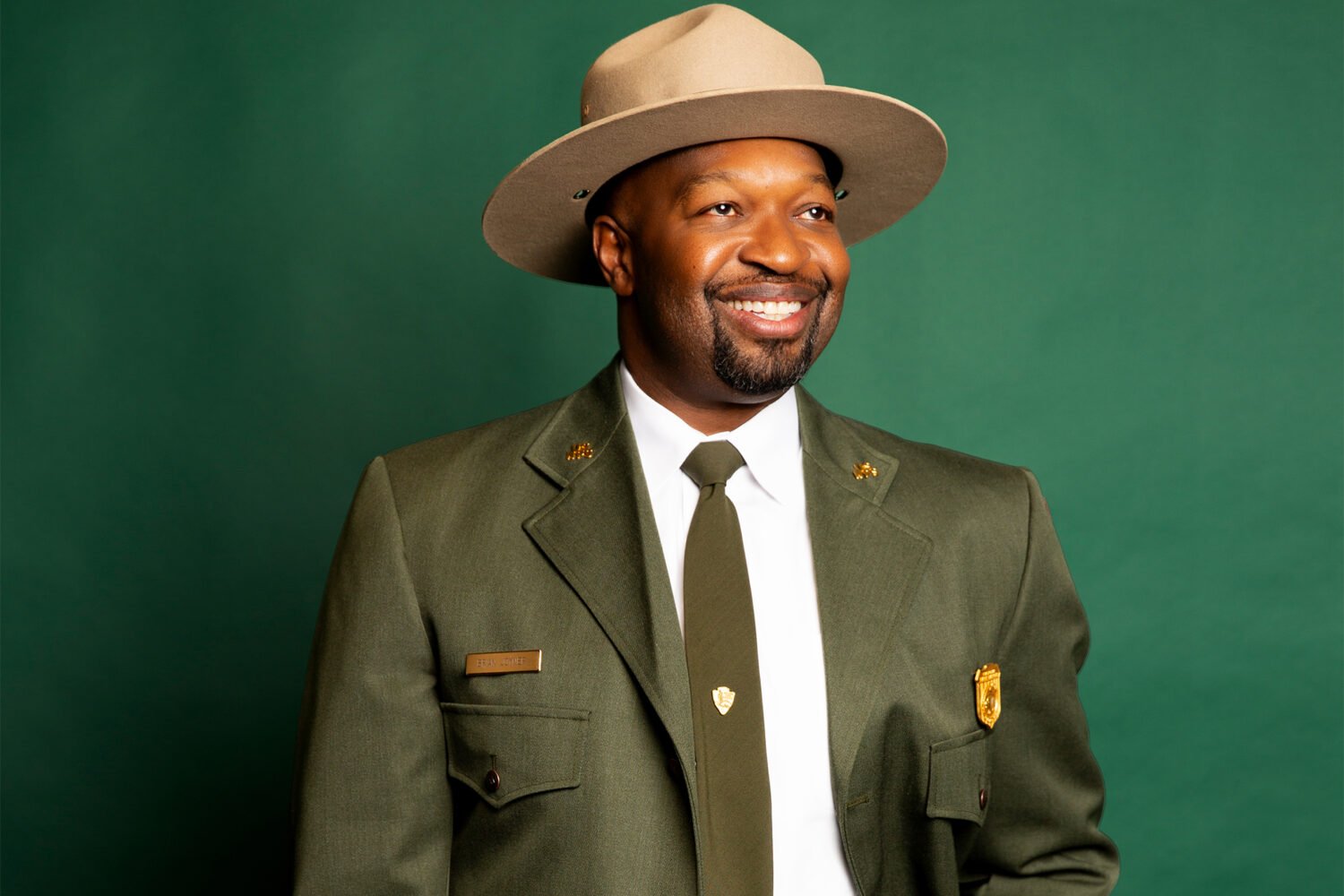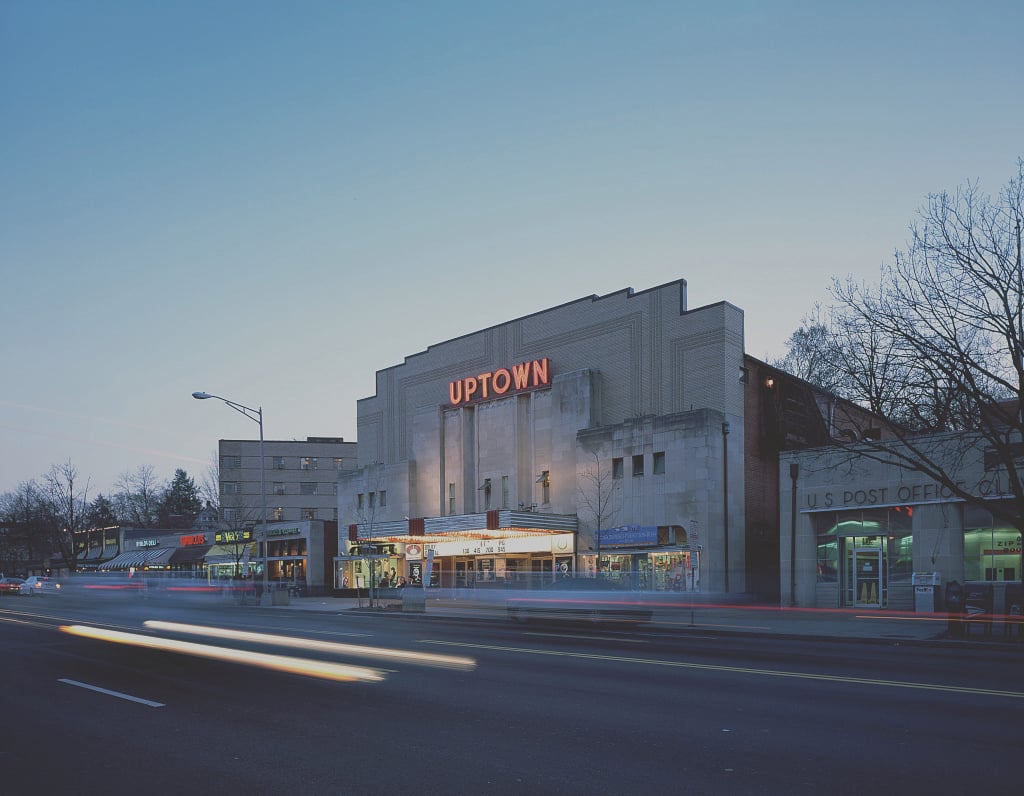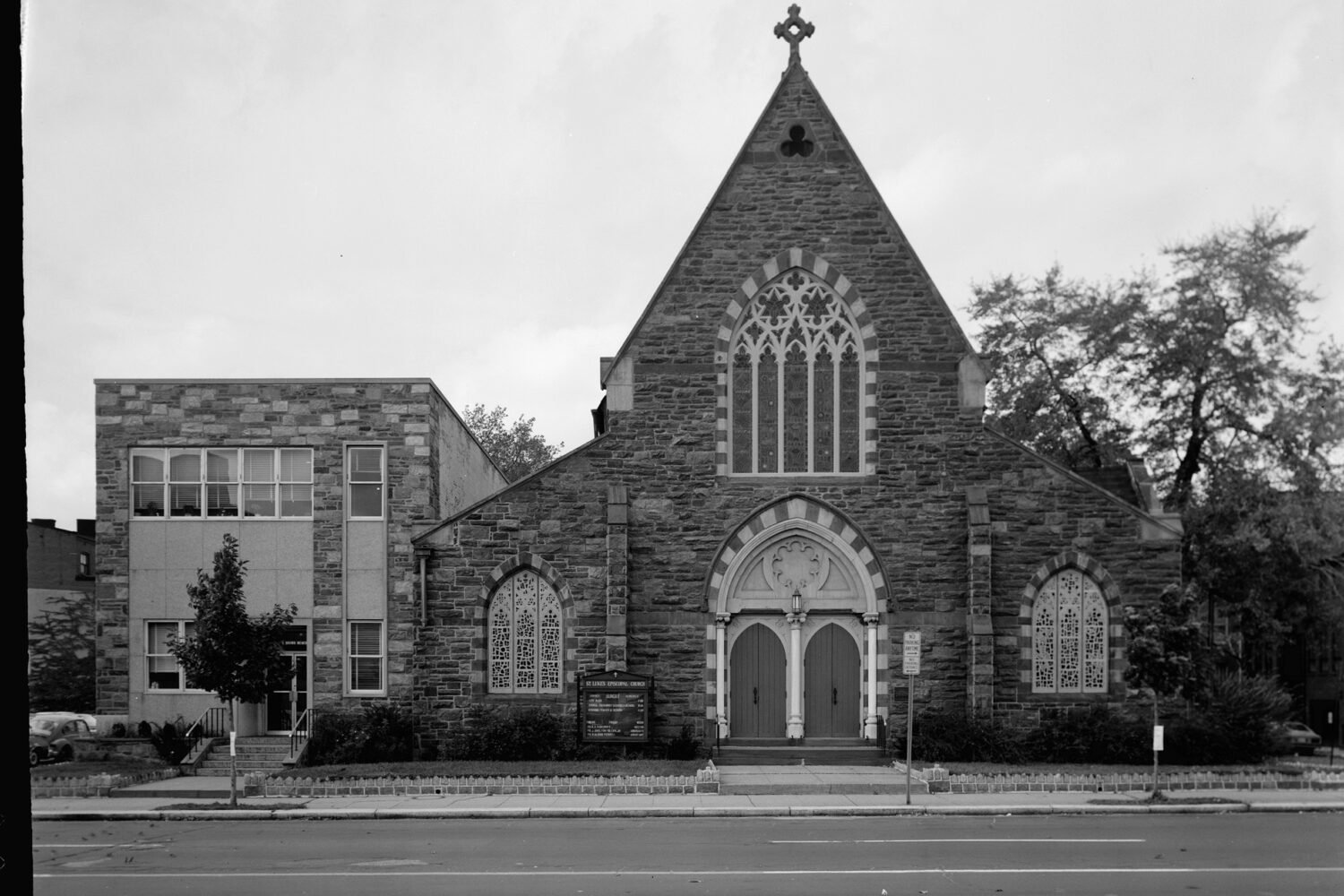Contents
Sitting in the Wawa at 19th and L, his bike locked to a rack out front, Chip Landis waits, and hopes, for some jobs to light up his smartphone. With a seating area, outlets, and public restrooms, it’s a convenient place to chill at 8:30 am after riding in from his Glover Park apartment. Two hours later, the 58-year-old bicycle messenger has three deliveries under his belt—shuttling Justice Department documents to the State Department, a law firm’s mail to the post office, and legal binders from the DOJ law library on Pennsylvania Avenue to its offices at 13th and New York.
It’s not a bad start for the morning following a federal holiday, but then things dry up until after lunch. Ultimately, Landis makes a dozen deliveries before heading home at 7 pm. Compared with when he began pedaling for a living, it’s a half day’s tally at best.
A bicycle messenger for nearly 20 years, Landis started just as cell phones replaced pagers and Nextel walkie-talkies as the state-of-the-art communications in the courier world. He’d just returned from a decade of teaching English in Taiwan and needed a job, any job. The freedom of riding a bicycle as an independent contractor appealed to him—and as a former All-State soccer player at Bethesda–Chevy Chase High, he had an athletic background. Why not?
Today Landis still loves the work. But he’s a dinosaur on wheels. Like affordable neighborhoods and half-smoke food carts, DC’s messengers are nearly extinct. With his cycling cap, compact build, and bulging calves, Landis resembles a retired Tour de France sprinter on his road bike—only many days, he pedals at half speed, barely breaking a sweat. At his previous gig, Landis was the last messenger left standing for a company called LaserShip, which has since merged with OnTrac. “They had 30 couriers when I started,” he says. “By the time the pandemic hit, I was covering the whole city for Laser.”
Landis now pedals for Washington Express—“WEX” among couriers for the past 40 years—which used to employ dozens of messengers and is currently down to a handful. The company maintains several federal-government accounts and charges good rates, of which Landis gets a healthy percentage, enabling him to cobble together a living. Though maybe not for long. The State Department, in particular, provides a steady stream of visa, passport, and embassy work. If that dries up—if passports go digital like everything else—there will be a lot less to deliver, he says, and that could even mean game over.
“I’ll probably be the last messenger at Washington Express someday, too.”
Capitol Flyers
Once upon a time, bike messengers were part of Washington’s fabric. In the 1980s, ’90s, and early aughts, hundreds of couriers roared through the city’s busy downtown streets on workdays—and when they weren’t making deliveries, they were taking lunch breaks in Dupont Circle and Farragut Square, where you’d catch a whiff of weed and see the occasional beer getting passed around. In 1998, local messengers even convinced city officials to host the World Cycle Messenger Championships, an annual and still active Berlin-born competition showcasing the array of breakneck skills necessary for the job.
The modern bike-courier industry started in 1960s New York, delivering film canisters for movie shoots. In DC, the business revolved around the federal government and its associated political offices, courts, and regulatory agencies. As a messenger from 1999 to 2004, I saw firsthand that Capitol Hill could be a gold mine. For years, if lobbyists wanted to send a formal letter, invitation, or small gift to members of Congress, it meant sending a courier, someone who knew the quasi-secret pedestrian tunnels connecting all the House and Senate buildings. Dripping perspiration and hurrying through the historic halls, you might bump into Joe Biden or Jesse Helms. Squeezing into the senators-only elevator, you might discover 4-foot-11 Barbara Mikulski staring up at you with an eviscerating glare.
MESSENGERS WERE SEEN AS “LAW-FLOUTING, OBSCENITY-SPEWING, BATH-NEEDING, WILD-RIDING, PEDESTRIAN-SMASHING MADMEN,” WHO “SHOULD BE KICKED OUT OF DOWNTOWN FOREVER.
Sometimes, you’d inadvertently get an inside peek at how Washington really operates, and how politics behind the scenes can differ from what you’d expect. During a trade dispute around steel imports, the legal filings I delivered taught me it was Republican-affiliated law firms that represented foreign interests. Handling deliveries from Philip Morris to the Hill, I learned Big Tobacco was a major funder of Black Congressional Caucus candidates and events. (About a dozen years later, Mother Jones published an exposé titled the troubling history of big tobacco’s cozy ties with black leaders. I still remember Philip Morris’s office manager always smoking at her desk, even after it was frowned upon elsewhere.)
Occasionally, you’d witness history. In those analog days, messengers would be among the very first people to get our hands on Supreme Court decisions. On two deliveries—one to the scandalized telecom giant World Com, another to the evidence-shredding accounting firm Arthur Andersen—I arrived to find mass, desk-clearing exoduses underway. It was weird: On one hand, you held the lowest-status job in Washington. On the other, you moved in and out of the city’s most important rooms and buildings, ferrying documents connected to the country’s biggest court cases and political debates. Every messenger felt the dissonance.
As part of his Laser job, Landis had acquired a Department of Labor badge—and with it became one of the few couriers who could make Hill deliveries in the wake of the post-9/11 anthrax scare, provided he cleaned up and didn’t look like a bike messenger. Landis once brought some envelopes to the Senate office of a Democrat from Illinois. As was required at the time, he first removed their contents. That’s when Landis realized that Barack Obama’s presidential ambitions were based on more than hope.
“Very early [in his campaign], I delivered ten [donor] checks, $5,000 each, to his office—number 713, right in the center of the Hart Building,” Landis says. “I walked past Obama as he was going down some steps, this tall African American flanked by two clever-looking white guys, who were actually telling him they were on their way to a meeting to talk about him becoming the next President.
“I came back and told a Laser sales representative that ‘Obama fever’ was real. They laughed. They said there was no way that a Black man or woman will ever become President of the United States.”
Back to Top
Messenger Madness
Away from the Hill, being a courier was a mix of parkour, NASCAR, and hot potato. There were no protected bike lanes. You were up against car, truck, taxi, and Metrobus drivers who (a) did not believe you had a right to be on the road and (b) therefore would not yield a single freaking inch. You were vilified by the public and the press—former Washington Post columnist Bob Levey pilloried couriers in a dozen articles, once calling them “law-flouting, obscenity-spewing, bath-needing, wild-riding, pedestrian-smashing madmen,” who “should be kicked out of downtown forever.” You were targeted by the police as well, who sometimes demanded to search your bags under flimsy pretenses and regularly threatened you with citations and bicycle confiscation if your bike wasn’t registered with the department, as required by law. (Years of grievances led to a Police Complaints Board investigation in 2005, which found that mandatory registration had been “used as a retaliatory and pretextual search tool against [minorities and] other unpopular groups.” It was repealed in 2008.)
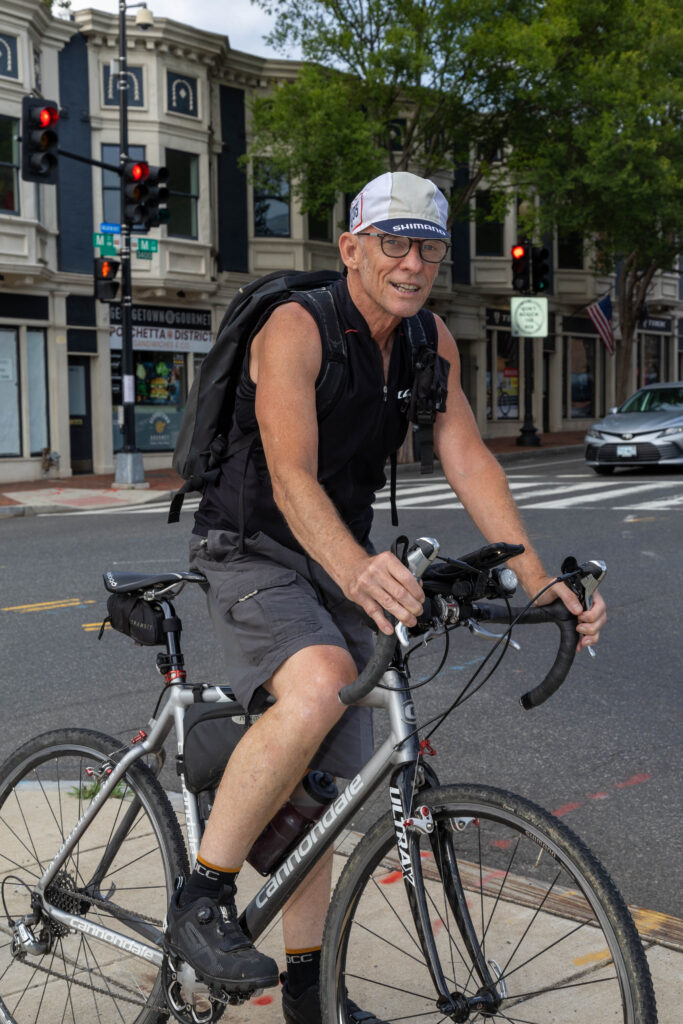
The work was demanding—and dangerous. A Harvard School of Public Health study estimated that Boston bike messengers’ injury rate was 13 times that of the average worker—and three times higher than the next-most perilous occupation, meatpackers. It would be hard to find a longtime messenger who never got bounced across a hood, required stitches, or had a bone reset.
Pat Riggin, a courier since 1989, estimates he’s been in more than 30 crashes. I remember one winter morning pedaling past him and noticing swelling and stitches above his eye. When I asked Riggin if he’d gone to the emergency room after a crash the previous night, he said that on principle he refused to pay high hospital fees—and had instead gone home and stitched himself up. In my worst crash, I hit a suddenly opening door of a Volvo so hard that the impact smashed the car’s corner panel and headlight as I catapulted down the street.
On a good day, you’d grab your delivery—usually after getting hassled by building security and running the stairs because the elevators took too long—and then pick up one, two, or three more packages en route, juggling ever-shifting drop-off times and locations. You’d also hand off and receive jobs from automobile couriers working the Beltway. All the while, you’d keep your side hustles secret from your main dispatcher: Many messengers worked for at least two delivery companies, but the companies didn’t have to know that.
The basic idea? Keep things moving east to west, between Capitol Hill, K Street, and Georgetown, while adjusting north and south as required. When the paralegals stepped out for lunch, things slowed down—perfect for dashing a high-paying delivery to Alexandria or Bethesda yourself instead of giving it to a car courier and collecting nothing—but when they returned, all hell broke loose. If you weren’t back downtown by 1:30 pm, you might miss out on the flurry of sweet-paying rush filings with an alphabet soup of regulatory agencies—the DOC, ITC, FTC, FEC, and SEC. Their deadlines were staggered between 4:30 and 6 pm, and federal clerks locked the doors on the dot.
IN MY WORST CRASH, I HIT A SUDDENLY OPENING DOOR OF A VOLVO SO HARD THAT THE IMPACT SMASHED THE CAR’S CORNER PANEL AND HEADLIGHT AS I CATAPULTED DOWN THE STREET.
Such was the job: netting $12 for a rush trip, working for big-shot attorneys making $250 an hour, with a Georgetown firm handing you a filing at 4:45 pm that had to be stamped at the Federal Energy Regulatory Commission—on First Street, Northeast—by 5. Your body was on the line. Someone’s case was on the line. There were no silver medals for second place. “I remember one time our courier got hit by a car, so we didn’t make the document filing on time,” says a former practicing DC lawyer who now teaches at Georgetown. “We appealed to the court, naturally. We explained what had happened to the courier. We reasoned it was akin to an ‘act of God’ or some such thing. The judge was not having it. He ruled against us.”
Back to Top
Digital Death Spiral
Pat Riggin could have taken another path. He graduated from the University of Maryland with a cartography degree in 1986 and landed an entry-level position in the field. Problem was, he’d also been a competitive road racer while in school, and became a part-time bicycle messenger shortly after receiving his diploma. “I had options,” Riggin says. “But after a while, I couldn’t see myself in an office every day when I could make money doing what I loved.”
Long before “gig economy” became a part of our lexicon, messengers lived precariously. No health insurance. No paid vacation. No benefits. Turnover was constant. Veterans didn’t bother to learn newbies’ names until they’d lasted a full winter. Female messengers were rare, too, largely because of the tremendous sexism they would face from the broader workforce while riding.
Still, those who stuck with messenger work felt a powerful pull—kindred spirits to people who love surfing or mountain climbing and find a way to make a living, and life, around it. The job also attracted a wildly diverse group of people, in part because typical barriers to entry such as age, race, ethnicity, and class didn’t apply. No GED or high-school diploma required. Ex-offenders welcome. When I suggested to Landis, the longtime messenger, that couriering offered an alternative for individuals who struggled to fit into traditional workplace settings—or were maybe just coping with undiagnosed attention-deficit disorder—he chuckled knowingly, adding that other personal issues may also play a part.
Landis has been clean and sober for 15 years. He’s not the only messenger who has spent time in the city’s 12 Step rooms. “The exercise, the sunlight and endorphins—it helps anyone with depression and anxiety,” he says. “Honestly, just the constant movement keeps things at bay.”
Antiestablishment by nature, if not downright antisocial in some cases, messengers nevertheless enjoyed a fierce camaraderie, rooted in the shared risks inherent in the job and a DIY ethos. In 1995, 80 DC couriers gathered for their first enter-at-your-own-risk nighttime race and scavenger hunt that was designed to mimic a chaotic workday. Similar “alley-cat” competitions with current and former messengers continue to this day. Likewise, local couriers started summer time-trial races in Rock Creek Park in the 1990s and bike-polo nights in the early 2000s. The former feature beer, cannabis, and potluck food; the latter got started with a street-hockey ball and PVC pipes attached to golf clubs. A messenger acquaintance once described such get-togethers as “20 percent race, 20 percent family reunion, and 60 percent party.”
In the golden age of couriering, Riggin was a commissioned contractor for one of the city’s biggest delivery companies, using the job to supplement his road-race and mountain-biking training while making enough money to fund bike-packing trips to Australia, Mexico, Spain, and New Zealand. Business was good enough that in 2000, he started a company of his own, Real Courier, with fellow messenger Matt Dwyer. “It was crazy in those days,” Riggin says. “These were the biggest law firms in the world, and they were putting out so much work.”
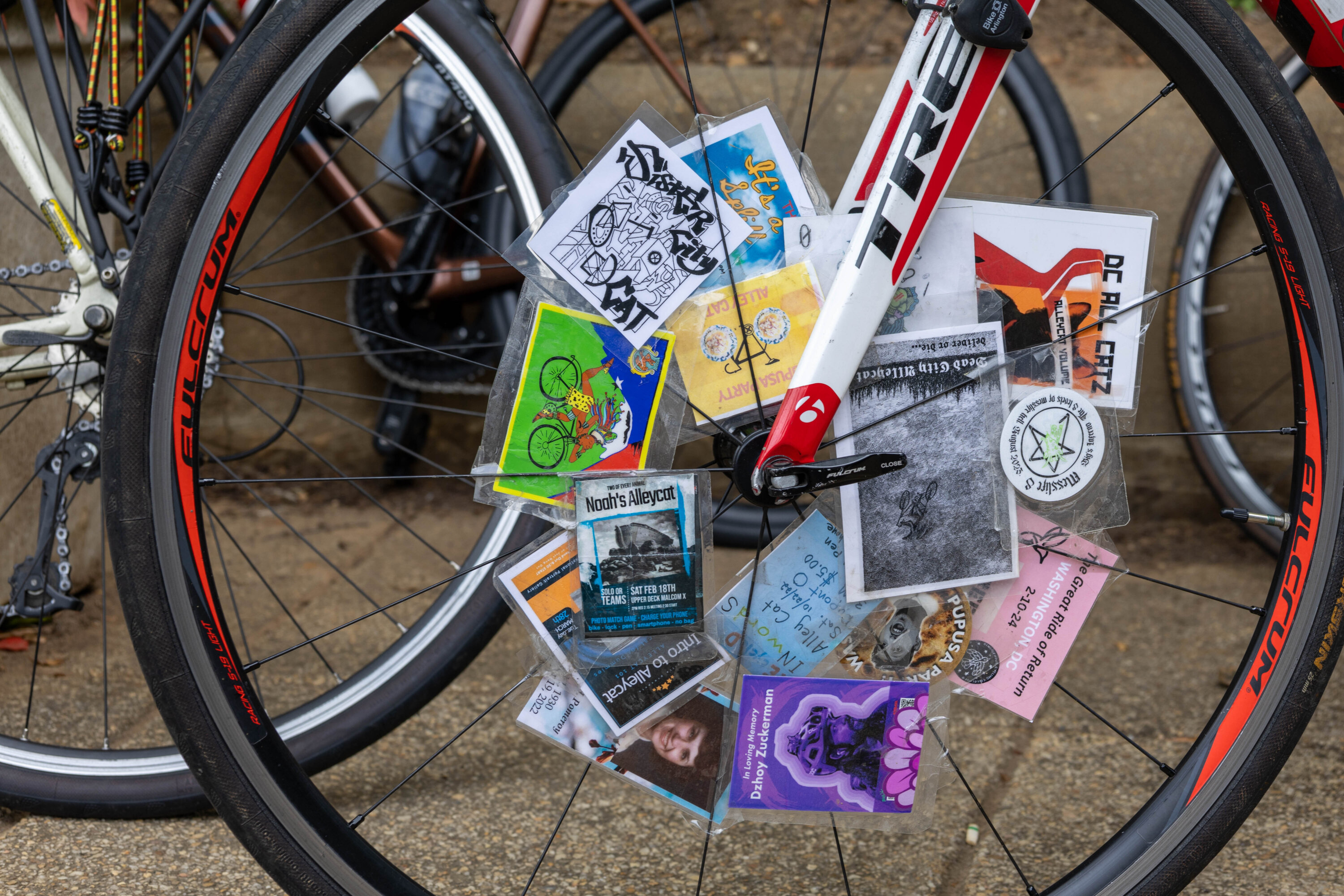
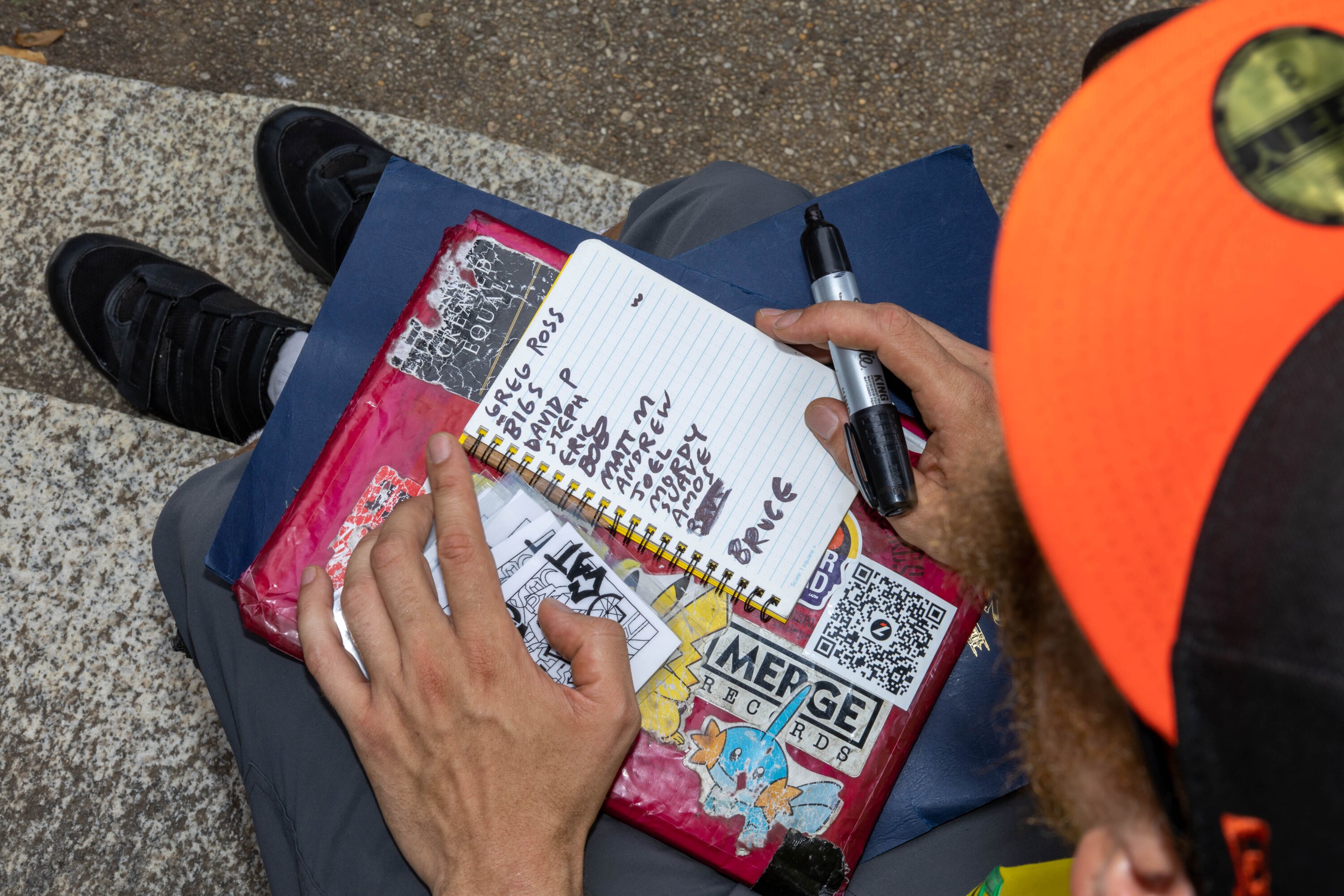
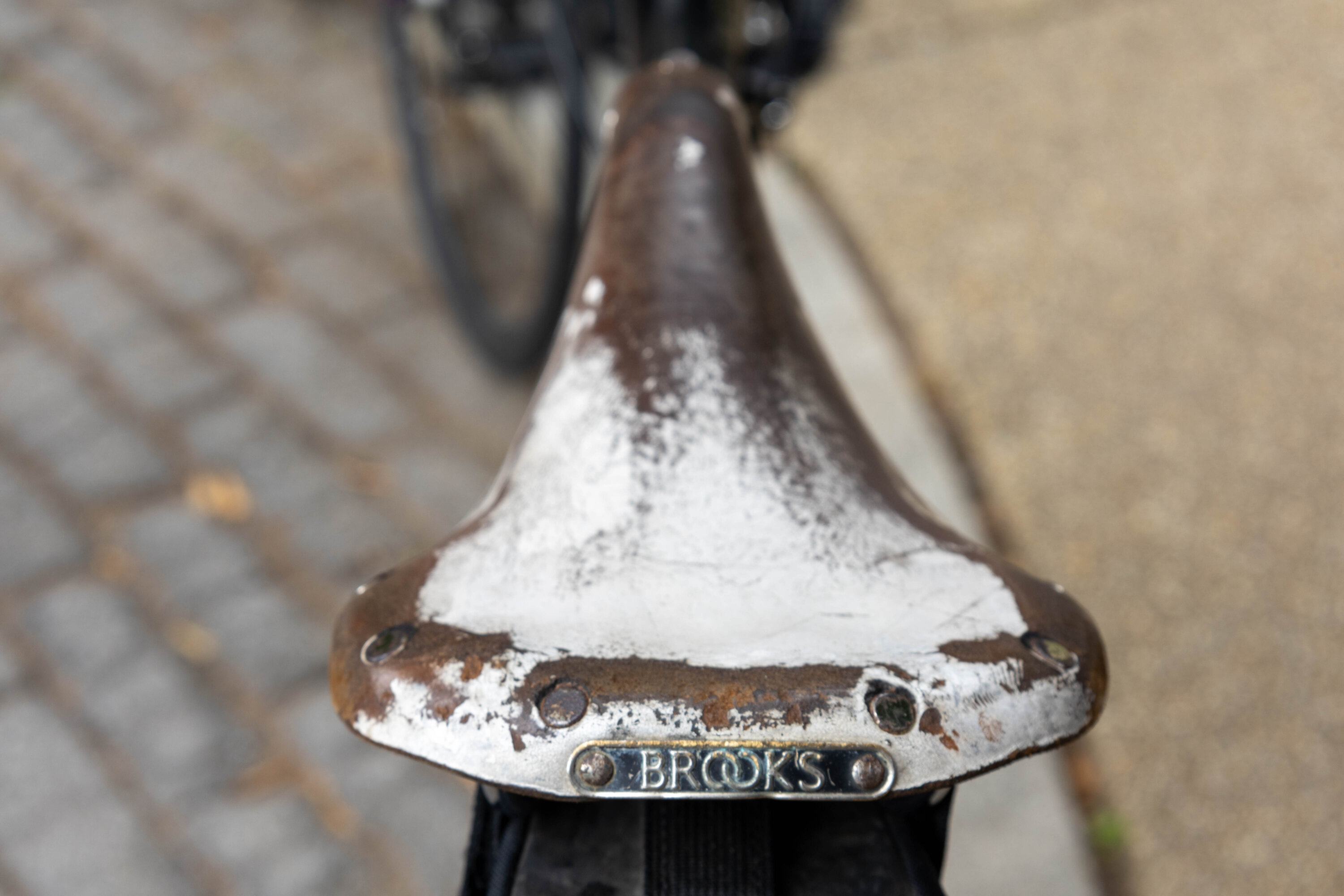
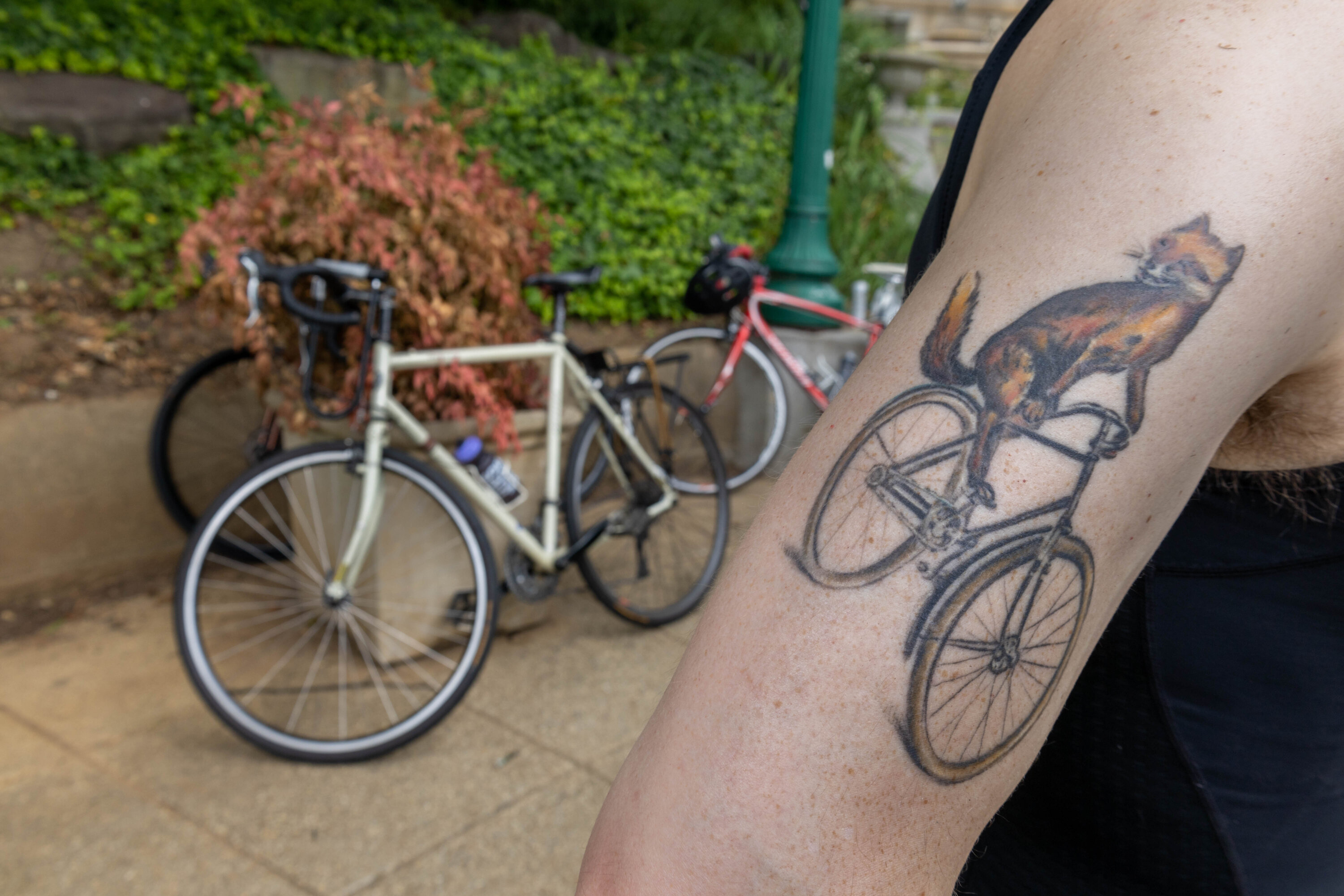
But trouble was bubbling. Fax machines, once feared in the courier world, hadn’t actually hurt the business too much. Nor was email fatal. September 11 was a different story. That day, I was living in a rent-controlled studio apartment in DC’s Chinatown. I saw the first hijacked plane hit the Twin Towers on CNN while packing sandwiches into my messenger bag. A moment later, my pager beeped with a job out of a law firm on Pennsylvania Avenue. Pedaling past the White House soon after, I wondered where all the people outside the gates were going on such a beautiful morning.
A month later, envelopes containing powdered anthrax were sent to the Senate offices of Tom Daschle and Patrick Leahy. The city seized up. Daily red, orange, and yellow terror alerts—whatever they actually meant—became the norm. Deliveries to the Hill screeched to a halt. Couriers holding envelopes were received as if we had the plague. One company, Capitol Hill Delivery, laid off its entire staff.
From there, the industry entered a slow, digital-driven death spiral. Federal agency after federal agency began accepting electronic filings. So did the courts. During the pandemic, they wouldn’t accept anything else. Like record- and video-store clerks before them, bicycle messengers fell by the wayside, their logistical knowledge and specialized skills no longer needed. (The Department of Labor doesn’t track specific employment stats for bicycle messengers, but in New York City, it’s estimated that their numbers dropped by roughly 1,000 between 1998 and 2008.)
Over the years, many former messengers pivoted to bike-related careers, becoming mechanics, builders, and shop workers. Riggin has managed to stay in the game, sort of. Now 65, he still makes deliveries around the Maryland and Northern Virginia suburbs—just not on his bike. His Toyota 4Runner has almost 400,000 miles on it. “I’d like to sell the company, to be honest,” he says. “I’m ready to get out.”
Twenty years ago, Riggin bought property and built a cabin near Harrisonburg, Virginia, a mountain-biking mecca. He spends most weekends there and can ride as much as he likes. On weekdays, by contrast, he’s limited to 90-minute training rides after work. “In my dreams, I’d like to build guest cabins on my property and start leading bike tours,” he says. “Things change. You adapt or you move on.”
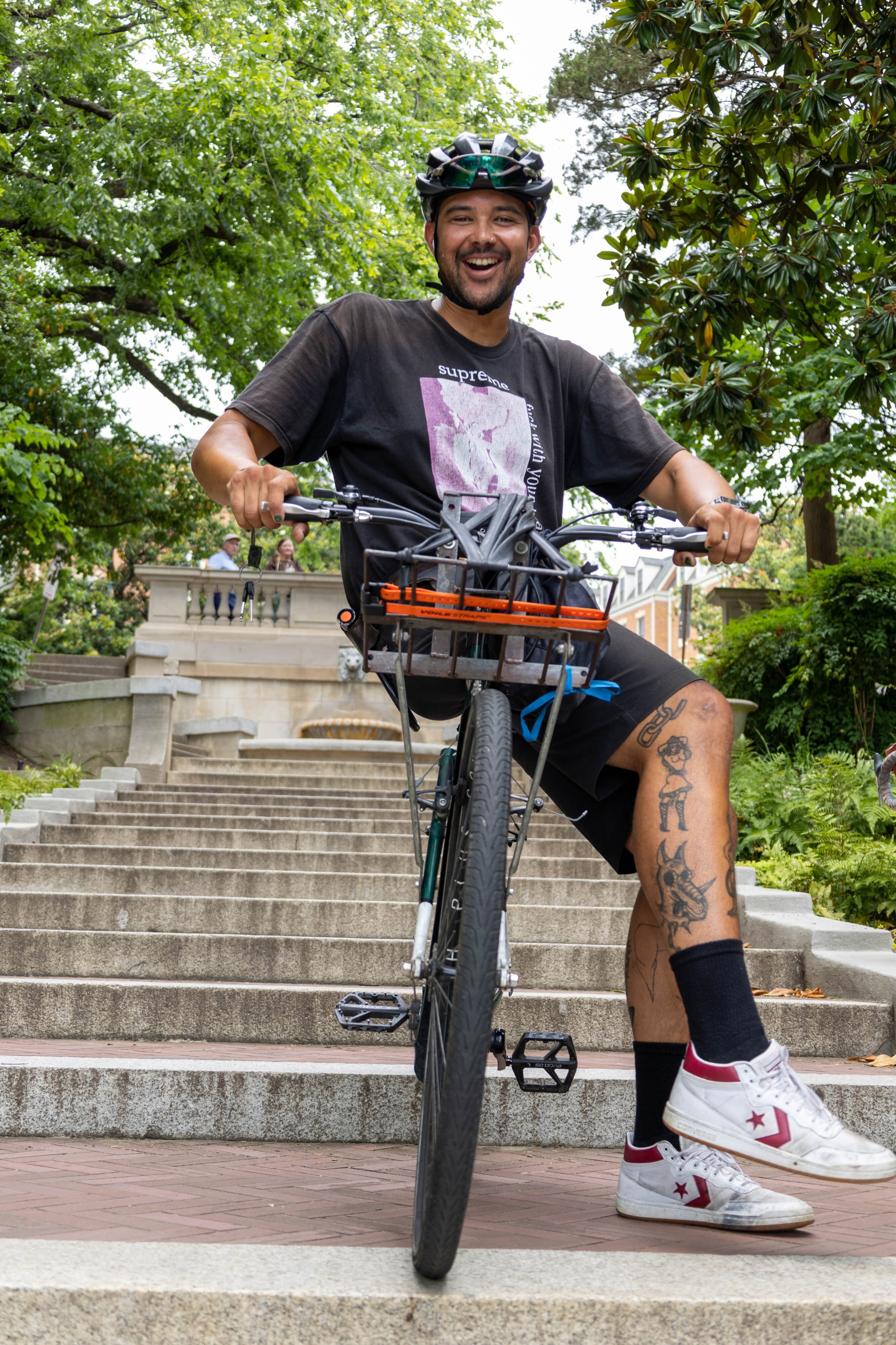
Back to Top
“Thank a Bike Messenger”
“Okay, okay, okay!” Paul “P.J.” Joyner yells, reassuringly, to the 20 or so current and former messengers and courier-adjacent cyclists who are killing time with beers and weed on Kalorama’s shaded “Spanish Steps.” It’s a scorching Sunday in late June, and the group has gathered for a 16.5-mile, ten-checkpoint alley-cat race.
A moped driven by a blond woman and adorned with a large F– TRUMP sticker kicks into gear and takes off. The cyclists follow, chasing the woman’s bouncing ponytail onto Connecticut Avenue, a dead uphill start, buzzing through traffic like bees dispersed from a hive that’s been smacked with a stick. The cyclists hit checkpoints at the Swiss Embassy, a lunch spot at 18th and I, a closed cafe on K Street, and the Government Publishing Office’s faded messenger entrance—the last one a relic of a world before PDFs. Next is a sprint to a restaurant in Northeast and then a cut through the National Mall area, with riders dodging tourist buses and distracted pedestrians en route to the 14th Street Bridge.
The sun and pace take a toll. Joel Gwadz, 56, a former courier and competitive mountain biker, suffers a bout of heat exhaustion, crashing along a Mount Vernon Trail ramp. “Once I realized it wasn’t a heart attack,” he later says, “I took off my helmet, dumped my water bottle on my head, and got going again.”
In the end, Andrew Timberg wins the race. A 21-year-old Columbia University student and part-time food courier who’s home on break, Timberg receives a battered trophy with a cyclist figure poised on top. The trophy was found in a Rosslyn dumpster. Someone slaps a label over its engraving and writes ANDREW across it. It’s a passing of the torch, in a way. Timberg laughs. “[It’s] cool, becoming part of the messenger legacy and this tradition,” he says.
“You know what’s funny?” he adds. “That’s my first trophy. In anything.”
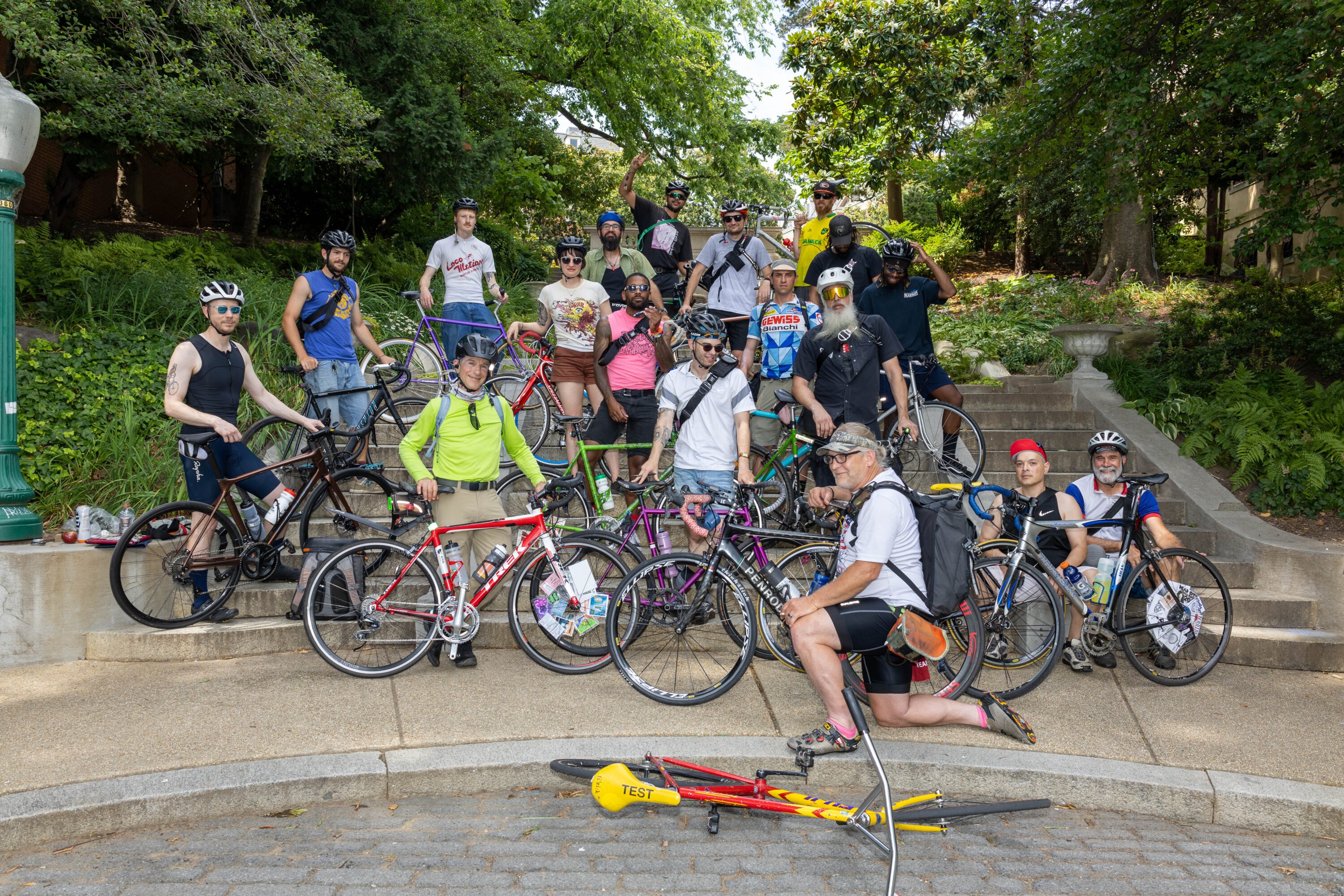
What is the legacy of DC’s bike messengers? For some, it’s the ancillary stuff—the fashionable messenger bags worn by people who don’t even ride, the popularity of sleek track bikes in hipster circles. For me, it’s a lasting love of cycling, and the memories of the best job I ever had. I’m not the only former courier who feels that way: On a Facebook page Landis administers, many of us keep in touch and relive our ride-hard, play-hard glory days.
But most profoundly, the messenger legacy lives on in the city’s increasingly bike-friendly physical landscape. In their heyday, couriers presented an alternative to the urban car culture of the last 40 years. Pedaling daily through DC’s auto-dominated streets, we paved the way for today’s explosion of bike lanes and cycle shares. In fact, former messenger Eric Gilliland was the second director of Capital Bikeshare, the first such system in North America. When he took the job, Gilliland hired other ex-messengers to fill key leadership positions—and to work as mechanics, inspectors, and re-balancers. “They not only brought a love of cycling to it, but they brought that can-do attitude, the willingness to work hard and sweat and make a difference,” he says.
“With any revolutionary change, it’s subcultures and people creating and using the space who lay the groundwork,” says Stephanie Bastek, a senior editor at the American Scholar, who recently completed a two-year project documenting the stories of bike messengers for the DC Oral History Collaborative, a joint project of HumanitiesDC and the city’s public-library system. “Politicians take credit for it—‘We did the bike lanes, we did this public service, aren’t we so great?’—when actually it’s the radicals out in the street who have been doing the thing for decades, and [then] cleaning up to testify before the city council, who are making the change.
“If you use bike lanes, whether it’s on a bike, e-bike, or a scooter,” she adds, “thank a bike messenger.”
Back to Top
Holding Out, Holding On
Back at Wawa, Landis digs into an egg-and-bagel sandwich. He was a philosophy major at Washington and Lee University. With his dark-rimmed glasses and thoughtful demeanor, he still looks the part off the bike. In his downtime, waiting for deliveries, he reads Chinese books written in their original script. Showing me his phone, Landis is aware of the irony: The digitization that has decimated his industry also enables him to pursue an interest in Chinese culture that would otherwise be impossible. “That’s the great thing about the internet, right?” he says, a wry note in his voice. “You can download anything.”
COURIERS PRESENTED AN ALTERNATIVE TO CAR CULTURE. PEDALING THROUGH DC’S AUTO- DOMINATED STREETS, WE PAVED THE WAY FOR TODAY’S EXPLOSION OF BIKE LANES AND CYCLE SHARES.
Landis knows this won’t last forever. Delivery work continues to slow down. He’s slowing down, too. “Physically, it has started to hurt,” he says. “I spend all Saturday in bed recovering from a week’s work now.” He concedes that maybe, one day, he’ll switch to riding an e-bike, like nearly all of the food-delivery-app couriers who represent the future of the bicycle hustle—a future without the thrill of making up to 40 deliveries in a single day, riding hard against the clock, 100-degree heat or 40-degree rain be damned.
Landis may get laid off. He doesn’t think he’ll quit. A little while later, as we’re pedaling together and discussing the stiffness that comes with riding a lot as you get older—as well as how much harder the pavement feels when you hit it—Landis shares that he recently had a checkup. It turns out that despite 20 years on a bike, he has high blood pressure. He recently began taking medication.
“It’s genetic,” Landis says. “Runs in the family.” With a smile, he adds, “my primary-care doctor thinks I should keep doing this as long as I can.”
This article appears in the September 2024 issue of Washingtonian.
